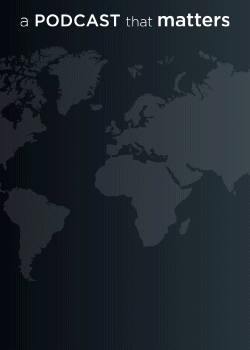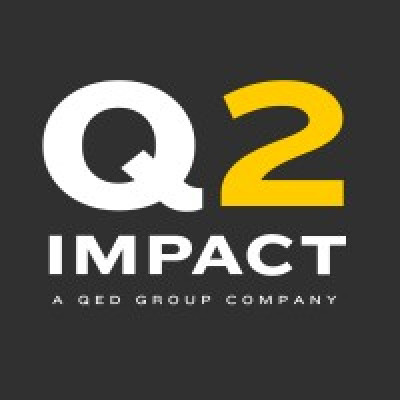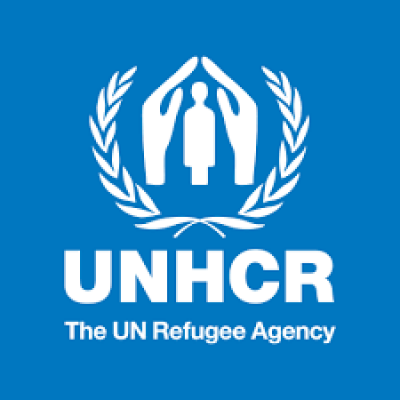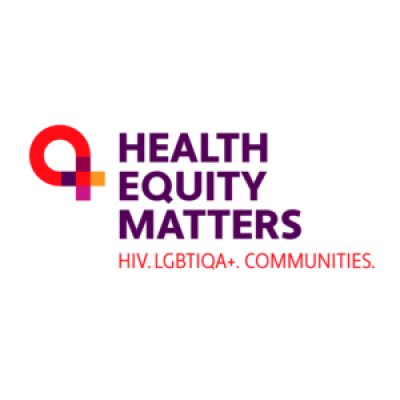Details
Description
Background
UN Women, guided by the principles of equality enshrined in the United Nations Charter, strives to eliminate discrimination against women and girls, empower women, and achieve gender equality. This includes promoting women's rights and their active participation in development, human rights, humanitarian action, peace, and security.
During the period of 2022-2025, UN Women ROAS (Regional Office for the Arab States) has embarked on a conceptual shift to accelerate results in Gender Equality and Women's Empowerment (GEWE) in the Arab States Region. This shift is driven by concrete actions and methodologies aimed at strengthening the generation of quantitative and qualitative evidence. It involves expanding UN Women's knowledge base on accelerators and drivers that impact programs, providing thought leadership on trends across thematic areas, and establishing a regional center of excellence for GEWE. One of the guiding principles of UN Women's regional strategy is evidence-based programming, relying on data and measurable results.
Strengthening the monitoring system for evidence generation is crucial to support the key strategic shifts outlined in UN Women's Strategic Note 2022-2025. This is particularly evident in the emphasis on producing and providing quantitative data in areas such as Women's Economic Empowerment (WEE), Violence Against Women (VAW), Women's Political Participation (WPP), and Women, Peace, and Security (WPS). It also involves measuring the impact of programs at the national level and implementing smaller innovations for scaling up. By enhancing systems and monitoring capacities, program planning, implementation, service delivery, advocacy, and technical coordination at both country and regional levels will be strengthened. This will create favorable conditions for achieving amplified results for women and girls, especially those who are most marginalized. Strengthening monitoring efforts will involve strategic engagement with relevant thematic focal points at the regional and country levels to ensure harmonized, coordinated, and well-institutionalized support.
The Regional Monitoring Specialist, reporting to the Deputy Regional Director, will play a pivotal role in ensuring effective data and results management within UN Women ROAS. He/she will work closely with country offices and collaborate with the programme and operations team at both UN Women HQ and ROAS to harmonize results measurement across offices and programmes. A key aspect of this role will be to lead the strengthening of the monitoring system in the Arab States region, ensuring comprehensive data collection and analysis and the development of data analytics platforms. The specialist will facilitate the generation of high-quality data and evidence, through the promotion of data-driven insights to inform decision-making and enhance the impact of UN Women's programmes in the region. Overall, the Regional Monitoring Specialist will be instrumental in driving effective data and results management, ensuring that UN Women ROAS maximizes its impact and achieves its objectives in advancing gender equality and women's empowerment in the Arab States region.
Duties and Responsibilities
Lead the monitoring system transformation within UN Women ROAS, focusing on advancing evidence-based programming and reporting for measuring the impact of programs on women and girls.
- Develop and implement a comprehensive monitoring system for evidence generation, aligned with the key directional shifts outlined in UN Women's Strategic Note 2022-2025;
- Strengthen programmatic implementation, service delivery, advocacy, and technical coordination at both the country and regional levels through the enhancement of monitoring systems and robust capacities.
Provide expert guidance to the country offices and manage monitoring and tracking of results against country/regional level targets and UN Women Strategic Plan.
- Develop, contextualize, test, and roll out monitoring tools and methodologies, and frameworks to enhance data collection, analysis, and reporting on programmatic impact;
- Manage the technical implementation and reporting of the monitoring system transformation with country offices;
- Provide guidance to staff and partners on evidence generation under the Results Based Management approach;
- Develop partnerships and resource mobilization strategies together with thematic areas to support monitoring efforts.
Provide thought leadership and expertise in the generation of evidence of impact and enablers in thematic areas (Women Economic Empowerment, Violence Against Women, Women Political Participation, and Women Peace and Security).
- Provide strategic guidance to country offices/partners on how to incorporate the resilience-focused monitoring approach across programmes;
- Foster partnerships through engagement with thematic focal points at the regional and country levels to ensure harmonized, coordinated, and well-institutionalized support for monitoring efforts;
- Strengthen knowledge generation on enablers and key factors affecting women's resilience in thematic spaces;
- Support evaluations and ensure relevant evaluation findings, conclusions, and recommendations are incorporated into the monitoring plans, tools, and methodologies;
- Develop the capacity of staff at the regional and country level and implementing partners on resilience-focused monitoring concepts and techniques and operate at the country level;
- Ensure linkage of Annual Work Plans (AWPs) and corresponding Monitoring, Evaluation, and Research (MER) Plans with the UN Women Strategic Plan;
- Ensure sufficient funds for monitoring, evaluation, and reporting at country/ regional level.
Lead the development and implementation of Track-it! Analytics Platform to support comprehensive and innovative real-time monitoring and analytics.
- Lead the design and oversee the development of Track-it! Analytics Platform, ensuring alignment with the objectives of the monitoring systems strengthening approach;
- Manage the implementation and integration of the analytics platform with existing monitoring systems and tools;
- Provide guidance and support to country offices in utilizing the analytics platform for data analysis, visualization, and reporting;
- Conduct training sessions and capacity-building activities for staff and partners on the effective use of Track-it! Analytics Platform;
- Continuously monitor and evaluate the performance and usability of the analytics platform, and implement enhancements and improvements as needed. Utilize modern technologies, such as big data and AI, to enhance the platform's capabilities;
- Foster knowledge sharing and learning on analytics best practices and emerging trends in monitoring and data analysis;
- Collaborate with IT teams and external vendors to maintain and update the analytics platform, addressing technical issues and ensuring smooth operations;
- Contribute to the development of data-driven insights and recommendations based on the analytics platform's outputs to inform programme planning and decision-making processes.
Lead and manage the development of the GenTRACK analytics and visualization platform.
- Advise and lead the strategic coordination of data and statistics priorities across regional and global projects (i.e., women’s economic empowerment, violence against women, governance and participation, environment, administrative data systems);
- Design the structure of GenTRACK Phase II, incorporating qualitative trend analysis and insightful information/tools for policymakers and data users;
- Collaborate with data experts or potential vendors to ensure the platform meets the needs of the region;
- Manage and upgrade the quality of GenTRACK to ensure optimal performance and reliability.
Effectively contribute to gender-sensitive resilience programming in the region through resilience analysis at the country level and the production of knowledge management and communication materials that aim at increasing awareness of internal and external stakeholders on gender-sensitive approaches to resilience programming.
- Lead capacity building of staff and partners in the region in the areas of Results Based Management (RBM) and resilience monitoring;
- Build capacities of country offices in resilience analysis, interpretation, and production of reports and recommendations that will inform programme planning, design, and response;
- Promote the awareness and understanding of the shared responsibility of Monitoring and Evaluation among all staff members through communication, training, learning, and development activities;
- Identify and disseminate good practices, lessons, and knowledge; as identified through programme implementation, monitoring, and evaluation activities;
- Finalize capacity development tools, including training materials and packages;
- Work closely with UN Women IT/HQ on the automation of the analysis process, towards real-time analysis.
Key Performance Indicators
- Timely and quality advanced technical support and guidance to country offices in line with the work plan
- Quality and timely systems for tracking/monitoring were developed and implemented.
- Timely synthesis and submission of quality and accurate reports
- Number of monitoring visits to country offices/ partners
- Quality and relevant training for staff
Competencies
Core Values:
- Respect for Diversity;
- Integrity;
- Professionalism.
Core Competencies:
- Awareness and Sensitivity Regarding Gender Issues;
- Accountability;
- Creative Problem Solving;
- Effective Communication;
- Inclusive Collaboration;
- Stakeholder Engagement;
- Leading by Example.
Please visit this link for more information on UN Women’s Core Values and Competencies: https://www.unwomen.org/sites/default/files/Headquarters/Attachments/Sections/About%20Us/Employment/UN-Women-values-and-competencies-framework-en.pdf
Functional Competencies
- Excellent knowledge of programme formulation and implementation and Results Based Management;
- Excellent knowledge of monitoring and evaluation, evaluation design, data collection and analysis, and reporting;
- Ability to synthesize program performance data and produce analytical reports;
- Excellent analytical and report-writing skills;
- Strong knowledge of UN programme management systems.
Required Skills and Experience
Education and certification:
- Master’s degree (or equivalent) in Political or Social Science, Economics, International Development Studies, or Gender/Women's Studies is required;
- A first-level university degree in combination with two additional years of qualifying experience may be accepted in lieu of the advanced university degree.
Experience:
- At least 7 years of progressively responsible experience at the national or international level in result-based monitoring and reporting of development projects/ programmes;
- Proven record of work in similar projects including managing results-based monitoring and reporting of complex programmes with detailed reporting requirements;
- Experience in the management of gender equality and women’s empowerment analytical work;
- Proven ability to work with diverse stakeholders and partners, including civil society, and grassroots organizations to ensure harmonized reporting systems across diverse stakeholders;
- Experience working on EU and Japan-funded programmes will be an asset;
- Experience in converting reporting materials into knowledge products for wider audiences is an asset;
- Experience in the UN common system is an asset;
- Field experience in a similar context is an asset.
Language Requirements:
- Fluency in English and Arabic is required.
Application Information:
- All applications must include (as an attachment) the completed UN Women Personal History form (P-11) which can be downloaded from http://www.unwomen.org/about-us/employment;
- Kindly note that the system will only allow one attachment. Applications without the completed UN Women P-11 form will be treated as incomplete and will not be considered for further assessment;
- UN Women will only be able to respond to those applications in which there is further interest.
Note:
In July 2010, the United Nations General Assembly created UN Women, the United Nations Entity for Gender Equality, and the Empowerment of Women. The creation of UN Women came about as part of the UN reform agenda, bringing together resources and mandates for greater impact. It merges and builds on the important work of four previously distinct parts of the UN system (DAW, OSAGI, INSTRAW, and UNIFEM), which focused exclusively on gender equality and women's empowerment.
At UN Women, we are committed to creating a diverse and inclusive environment of mutual respect. UN Women recruits, employs, trains, compensates, and promotes regardless of race, religion, color, sex, gender identity, sexual orientation, age, ability, national origin, or any other basis covered by appropriate law. All employment is decided on the basis of qualifications, competence, integrity, and organizational need.
If you need any reasonable accommodation to support your participation in the recruitment and selection process, please include this information in your application.
UN Women has a zero-tolerance policy on conduct that is incompatible with the aims and objectives of the United Nations and UN Women, including sexual exploitation and abuse, sexual harassment, abuse of authority, and discrimination. All selected candidates will be expected to adhere to UN Women’s policies and procedures and the standards of conduct expected of UN Women personnel and will therefore undergo rigorous reference and background checks. (Background checks will include the verification of academic credential(s) and employment history. Selected candidates may be required to provide additional information to conduct a background check).





